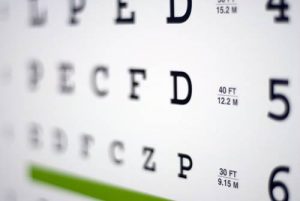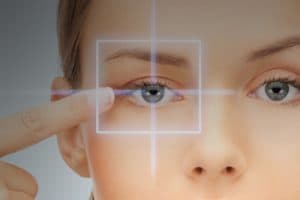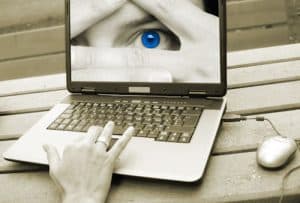2021 Update: Reading Comprehension
Since 80 percent of learning is through vision, if a child has a visual problem it will affect their reading comprehension. The first step in
Read More2021 Update: Reading Fluency
80 percent of classroom learning is visual, meaning that any problems in the visual system can impact a child’s reading fluency. If a child has
Read More2021 Update: BVD and Dyslexia
Studies show that up to 15% of the population may be dyslexic, though less than 10 percent actually receive a formal diagnosis. Dyslexia is a complex condition that impacts the way the brain interprets and processes information. It is one of the most common learning disabilities that affects writing, spelling and reading.
Read MoreIs there a Link between Visual Skills and Reading?
We thank Dr Dan Fortenbacher for the context of this blog. This is based on Dr Dan’s blog on the VisionHelp website; ‘The importance of
Read MoreVision and Autism: Part 2
Author: Randy Schulman, MS, OD, FCOVD As vision is key to so many other systems, vision intervention, such as vision therapy, can have a profound
Read MoreVision and Autism: Part 1
Author: Randy Schulman, MS, OD, FCOVD This year marks my 30th year as an optometrist and during all of those years I have seen thousands
Read MoreWhat Are Visual Efficiency Problems?
Poor visual efficiency skills can negatively impact performance in school, at the office, and on the sports field. Understanding and knowing what to look out for can help with early detection and treatment of visual problems – leading to improved school grades and sports achievements.
Read MoreWhich Eye Conditions Can Affect Learning?
According to the College of Optometrists In Vision Development (COVD), 25% of all children have an undiagnosed vision problem impacting their school grades. If your
Read MoreDoes Your Child Have a Learning Difficulty?
Is your child not reaching their potential at school? Up to 80 percent of all learning comes through the eyes and visual pathways. Strong visual skills are critical for all aspects of learning. If there are problems with your child’s visual skills it could impact their ability to learn.
Read MoreWhat Is Neuroplasticity?
Neuroplasticity refers to the brain’s ability to change and adapt in response to new experiences. It was once thought that the nerve fibers in the
Read MoreHow to Improve Your Child’s Reading Skills
If your child struggles to read, they may have an undetected visual problem. Reading fluency and comprehension is dependent on the strength of the visual skills – specifically, binocular vision, saccades, accommodation, visual fixation, and convergence. A deficiency in any of these visual skills can result in reading difficulties, which can consequently impact a child’s ability to learn.
Read MoreUnderstanding Convergence Insufficiency
Convergence insufficiency (CI) affects up to 15 percent of all school-age children. Convergence insufficiency is a binocular vision condition that affects near vision and eye
Read MoreDo Vision Screenings Assess Functional Vision?
Most vision screenings conducted at schools measure visual acuity, or how well you can see, but unfortunately, do not assess other important aspects of a
Read MoreVision Therapy for Math: Success Stories
Personal stories from adults and children who improved their math scores following Vision Therapy. *Names have been changed for privacy protection. Click here for a
Read MoreVision Therapy: Success Stories
Real life stories of children with reading difficulties, where an underlying visual problem was diagnosed and treated by an eye doctor experienced in children’s vision. *Names have been changed for privacy protection.
Read MoreDo Pencil Push-Ups Work?
Pencil push-ups are a commonly prescribed eye exercise for the treatment of convergence insufficiency (CI). The question is, are they really effective? Pencil push-up treatment
Read MoreCan Glasses or Eye Patches Treat Convergence Insufficiency?
If you have been diagnosed with convergence insufficiency (CI), or are experiencing symptoms of CI, you may be wondering how CI is treated. Any type
Read MoreDo I Have Convergence Insufficiency?
Wondering if convergence insufficiency (CI) is impacting your school or work performance? Take this quick quiz to find out. People with CI often experience blurry
Read MoreConvergence Insufficiency FAQs
Q1: What is convergence insufficiency (CI)? A: Convergence insufficiency is a highly treatable binocular vision condition that affects near vision and eye muscle coordination. Convergence
Read MoreVision for Basketball
Many have dreamed of netting a 3 pointer the way Stephen Curry can— but did you know that strong visual skills are needed to land
Read MoreVision for Football
Did you know that Larry Fitzgerald, 11 times pro-bowl receiver of the Arizona Cardinals, attributes his success to vision therapy? Football is a sport in
Read MoreVision for Ice Hockey
Your visual skills can affect your ice hockey performance. Wayne Gretzky, known as the “The Great One”, is the leading scorer in NHL history, with
Read MoreVision for Soccer
Soccer skills are dependent on your physical stamina, legs and feet … and also your eyes. Soccer is played in over 200 countries, making it
Read MoreVision for Tennis
Tennis players need speed, endurance, flexibility, and agility to be successful in the game. Did you know that tennis players also need excellent visual skills?
Read MoreVision for Golf
Strong visual skills are vital for optimal golf performance— from seeing your target, reading a putt, and even visualizing your swing? Your ability to play
Read MoreVision for Baseball
If you think that hitting that 100 mile per hour fastball out of the park is all about athletic genes or natural abilities, what you
Read MoreVision Therapy for Adults
Vision therapy is a proven and effective solution for adults as well as children.
Do you feel like your work performance is impacted by headaches or eye strain?
Are you finding it stressful to meet deadlines?
Vision therapy is a remarkably effective program that improves vision skills to achieve more comfortable vision for reading and computer use – enhancing your workplace productivity.
Optical and Contact Lenses
Buying your new pair of eyeglasses can be fun. The quality and range of lenses are always increasing. Considering contact lenses or laser surgery?
Read MoreExophoria and Esophoria
Has your child been diagnosed with exophoria or esophoria? Both of these may appear as an eye turn, and can be successfully treated with eyeglasses and/or vision therapy.
Read MoreDoes My Child Have ADHD?
The primary behaviors associated with ADHD are inattention, hyperactivity, and impulsivity. These are similar to those experienced with undiagnosed visual problems and may be improved with vision therapy.
Read MoreThe Myth of 20/20 Vision
Have you been told that your child has ‘perfect 20/20 vision’, but is still not reaching their potential at school?
A child can have 20/20 sight, and still have one or more vision problems affecting their school grades The term ’20/20 vision’ only means your child has clear distance sight, but they may still have lazy eye, eye tracking, eye focusing or visual information processing issues.
Vision Therapy FAQs
We are sure you have many questions, these FAQs are the most frequently questions asked by patients and parents to vision therapy eye doctors.
Find answers to your questions quickly and easily.
A Guide to Children’s Eye Diseases
As your child grows older, annual exams are crucial to ensure that their eyes continue to develop normally, and to detect any changes in vision or ocular health. Importantly: vision screenings conducted by schools are not a substitute for a comprehensive eye exam – ocular diseases and many vision problems cannot be identified through a screening.
Read MoreChildren’s Vision
Home > Children’s Vision Children’s Vision Would you like to understand the importance of a pediatric eye exam? Would you like to know how to
Read MoreOptometric Management of Dyslexia
Comprehensive eye exams are essential if your child has been diagnosed with dyslexia.
Children diagnosed with dyslexia could have an undiagnosed visual problem and may respond well to options such as eyeglasses or vision therapy.
Convergence Insufficiency
Convergence Insufficiency (CI) impacts the lives of up to 15% of all students. This is a highly treatable binocular vision condition that affects near vision and eye muscle coordination.
Children with CI can be mislabeled as ‘lazy’, ‘clumsy’, ‘poor students’ and ‘anxious’, or even misdiagnosed with ADHD and dyslexia.
Vision Therapy Quiz
Could a vision problem be impacting your child’s school performance?
Take a quick quiz to find out.
Take a quick quiz to see if your child could benefit with vision therapy. If your child is not performing to their academic potential, they may be suffering from a vision problem. According to experts, up to 50 percent of children with learning difficulties have a vision disorder that is impacting their ability to learn.
Read MoreConvergence Insufficiency and ADHD
This page provides just two of the many research papers that link Convergence Insufficiency (CI) with ADHD. 1. The Relationship Between Convergence Insufficiency and ADHD
Read MoreVision and Brain Injuries
Can the eyes and visual system be affected by a brain injury? Yes, Traumatic brain injury (TBI) can result in significant vision problems, unfortunately these often remain undiagnosed for years, dramatically impacting the quality of life.
Read MoreHow Does a Traumatic Brain Injury Cause Vision Problems?
Brain injuries can lead to vision problems, especially in children. We often think of a Traumatic Brain Injury (TBI) affecting adults, however consider these facts:
Read MoreEye Conditions That Cause Strabismus
Many common eye conditions can lead to an eye turn. Eye turns affect over 3 people in 100 and can be successfully treated by eye doctors, often without needing complex eye surgery.
Read MoreHow Does Vision Affect Learning?
Since up to 80% of everything a child learns is derived through the visual pathways and their eyes, if there is any interference in their vision, a child may not develop to their maximum potential. There are 17 visual skills that are essential for learning.
Read MoreVision Therapy for Convergence Insufficiency: Success Stories
Real-life stories from parents of children who have successfully completed a vision therapy program for the treatment of Convergence Insufficiency. *Names of the children and
Read MoreEffective Treatment for Convergence Insufficiency
Clinical research study shows the effectiveness of vision therapy for the treatment of Convergence insufficiency (CI). Convergence is an essential visual skill for success in
Read MoreVision Therapy: Evidence-Based Research
Vision therapy is an evidence-based treatment modality. Do you want to see a list of references for published research articles on vision therapy and its effectiveness? Some of the references are available as links to original published research or complete articles in PDF format.
Read MoreWhat Is Vision Therapy?
Vision therapy is a fully customized and personalized treatment program designed to improve and strengthen visual skills, and re-train the child’s visual system to interpret visual input with increased accuracy and ease.
Vision therapy is more than just simple eye exercises — it improves brain-eye communication, and the effective operation of the child’s visual system.
The aim of vision therapy is to enhance the visual skills — eye-tracking, focusing, convergence, eye-hand coordination, visual processing speed and more!
The 17 Key Visual Skills
There are 17 essential visual skills for success in reading, writing, sports, and practically all of a student’s school activities. Vision therapy can help to strengthen the visual skills – and may be just be the solution you have been searching for.
Read MoreADHD and Vision: Recent Research
Recent research has shown that ADHD behaviors may actually be a result of vision problems. If your child is fidgety, hyperactive, or distressed by his schoolwork, you may think that a diagnosis of ADHD is obvious. In the last 15 years, many clinical trials have been published and show that many vision problems can affect your child in the same way as an attention deficit disorder. Vision problems can be effectively treated, often without medications.
Read More















































